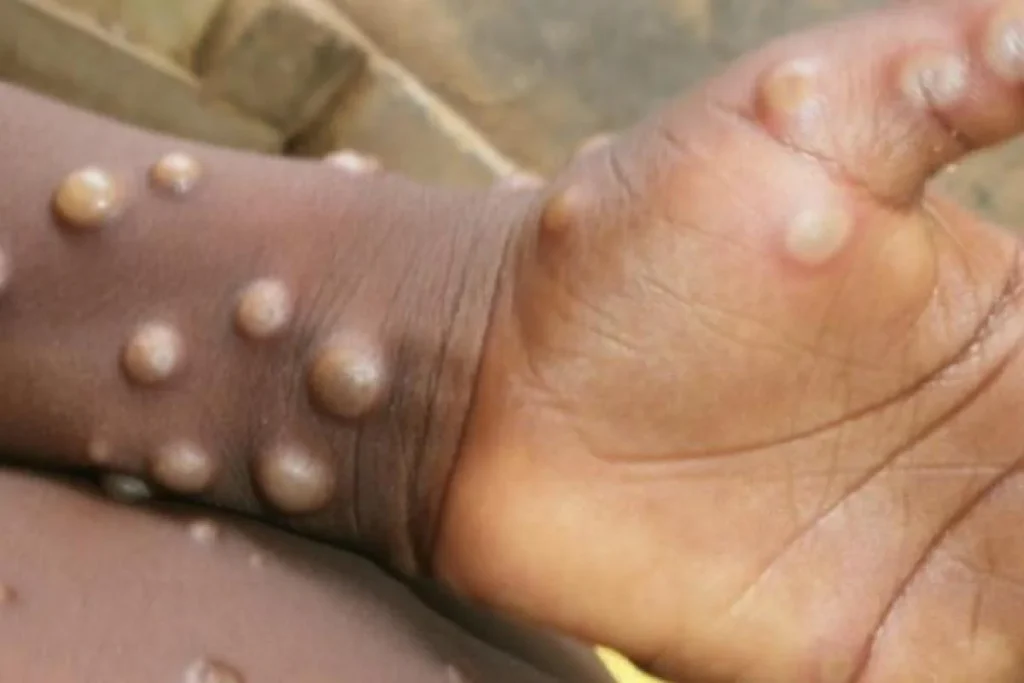
The Africa Centres for Disease Control and Prevention (Africa CDC) and the World Health Organisation (WHO) have launched a six-month joint response plan worth $600 million to strengthen the fight against the ongoing Mpox outbreak across Africa.
Speaking during a webinar engagement with journalists on Friday, director-general of Africa CDC, Dr. Jean Kaseya provided updates on the Mpox outbreak in the Democratic Republic of Congo (DRC) and other African member states. The plan, running from September 2024 to February 2025, aims to curb the spread of the virus and protect vulnerable populations across the continent.
Mpox, formerly known as monkeypox, is a viral disease similar to smallpox but less severe. Symptoms include fever, rash and swollen lymph nodes, with the disease spreading from animals to humans and through human-to-human contact. In 2022, health authorities renamed monkeypox to “Mpox” to reduce the stigma and discrimination associated with its original name.
“The launch of the Mpox Strategic Preparedness and Response Plan follows Africa CDC’s declaration of a public health emergency of continental security (PHECS) on August 13, 2024 and WHO’s declaration of a public health emergency of international concern (PHEIC) a day later,” Kaseya said.
He expressed pride in the collaborative effort, stating, “We are proud to jointly launch this plan, which unites all stakeholders in a coordinated approach to tackling the Mpox outbreaks across Africa. This unified strategy ensures that all partners are aligned on common objectives, eliminating duplication and maximising impact.”
According to Kaseya, 55 per cent of the $600 million budget will be allocated to Mpox response efforts in 14 heavily affected member states, while readiness activities in 15 other countries will be supported. The remaining 45 per cent will cover operational and technical support, including collaboration with partners.
WHO regional director for Africa, Dr. Matshidiso Moeti emphasised the importance of collaboration between Africa CDC and WHO. “This is an important milestone for coordinated action between our agencies to support countries by reinforcing expertise, mobilising resources and capacities to swiftly and effectively halt the spread of Mpox. By coming together, we can achieve more, ensuring communities are protected from the threat of this virus,” she said.
Moeti noted that Mpox cases have escalated rapidly across Africa over the past three years, driven by both zoonotic transmission and intensified human-to-human transmission through behaviours such as sexual contact. She explained that the rising number of cases necessitates a robust, coordinated response to prevent further outbreaks.
The response plan emphasises a community-centered and multi-sectoral approach tailored to the specific epidemiological risk profiles of each member state. This strategy includes bolstering surveillance, enhancing laboratory testing, fostering community engagement and ensuring the availability of vaccines and other critical countermeasures. It also aims to build resilient and equitable health systems for addressing future outbreaks.
African countries are classified into four categories under the plan, based on their Mpox risk level and outbreak status: countries with sustained human-to-human transmission, countries with sporadic human cases since January 2022 or endemic zoonotic reservoirs, countries needing enhanced readiness due to proximity to affected nations and all other countries not part of the three categories.
For each category, the plan outlines tailored priority actions to guide national strategies in managing and mitigating the epidemic. These actions include strengthening case management, infection prevention and control (IPC), vaccination, risk communication and community engagement.
The joint response plan, co-coordinated by Africa CDC and WHO, is supported by various stakeholders, including UN agencies, non-governmental organisations and civil society. It follows the “one team, one plan, one budget, one monitoring and evaluation” model outlined in the Lusaka Agenda.
A continental incident management team, comprising members from key partner organisations, has been established to oversee the coordinated response and ensure all efforts are aligned to maximise impact.
This $600 million initiative underscores Africa’s commitment to tackling the Mpox outbreak with a unified, evidence-based approach, strengthening the continent’s health systems to prevent further spread and safeguard communities.
The DRC, a Central African country with a population of about 100 million, remains at the epicenter of the outbreak. The WHO declared Mpox a global public health emergency last month. Mpox cases have been reported in at least 13 African countries, with Guinea recently confirming its first case. The virus has also been detected in Pakistan, the Philippines, Sweden and Thailand. The WHO declared a global emergency on August 14 due to the surge in cases of the new Clade 1b strain.

